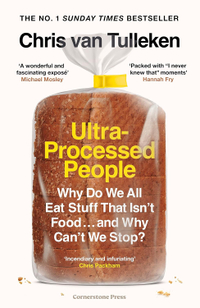These are the ultra-processed foods to avoid in your diet
Ultra-processed foods (UPFs) are products that contain ingredients you wouldn't typically find in a normal kitchen - but some on this list may surprise you


Ultra-processed food has been a buzzword over the last couple of years, referring to produce far removed from its natural state and containing ingredients not normally used in home cooking like additives and preservatives.
As the name suggests, these ultra-processed foods tend to go through a lot of processing before being packaged, which also often reduces the nutritional quality of the food. Experts have linked overconsumption of these UPFs to conditions like obesity, type-2 diabetes, and heart disease. However, there is no reason why many of these UPFs can't have a place in a varied and balanced diet.
You may also be surprised to learn that alongside the foods we know are ultra-processed - like microwave meals and fizzy drinks - sit many foods that are conventionally healthy and packed with vitamins and minerals, and high in important macronutrients like fibre, carbohydrates and protein.
Fizzy drinks

It comes as no surprise that fizzy drinks are one of the most typical ultra-processed foods, given they contain few natural ingredients.
These drinks - including cola, orange sodas, grape sodas, ginger beer, and lemon and lime-flavoured carbonated drinks - contain high levels of high-fructose corn syrup, along with artificial flavours and preservatives like sodium benzoate, which allows for long-term storage.
Ultra-Processed People: Why Do We All Eat Stuff That Isn’t Food … and Why Can’t We Stop? | £10.99 at Amazon
Doctor and academic Chris Van Tulleken dives into UPFs, the effect they have on our body, how they are produced, and how little choice we have now when it comes to consuming them. The official synopsis summarises it as "A book about our rights. The right to know what we eat and what it does to our bodies and the right to good, affordable food."
Pre-packaged biscuits

Biscuits you buy pre-packaged from the supermarket are another ultra-processed food. They contain added sugars, refined flour, and trans fats - made from hydrogenated vegetable oils and produced on an industrial scale - along with emulsifiers and artificial flavourings.
Crisps

Much like biscuits, sweets, and other pre-packaged foods, crisps are an ultra-processed food. When being made, the potato is processed with refined vegetable oils and contains artificial flavours and colours.
Sign up for the woman&home newsletter
Sign up to our free daily email for the latest royal and entertainment news, interesting opinion, expert advice on styling and beauty trends, and no-nonsense guides to the health and wellness questions you want answered.
However, some are better than others. When choosing crisps, opt for those with the least ingredients on the back of the package.
Wholemeal bread
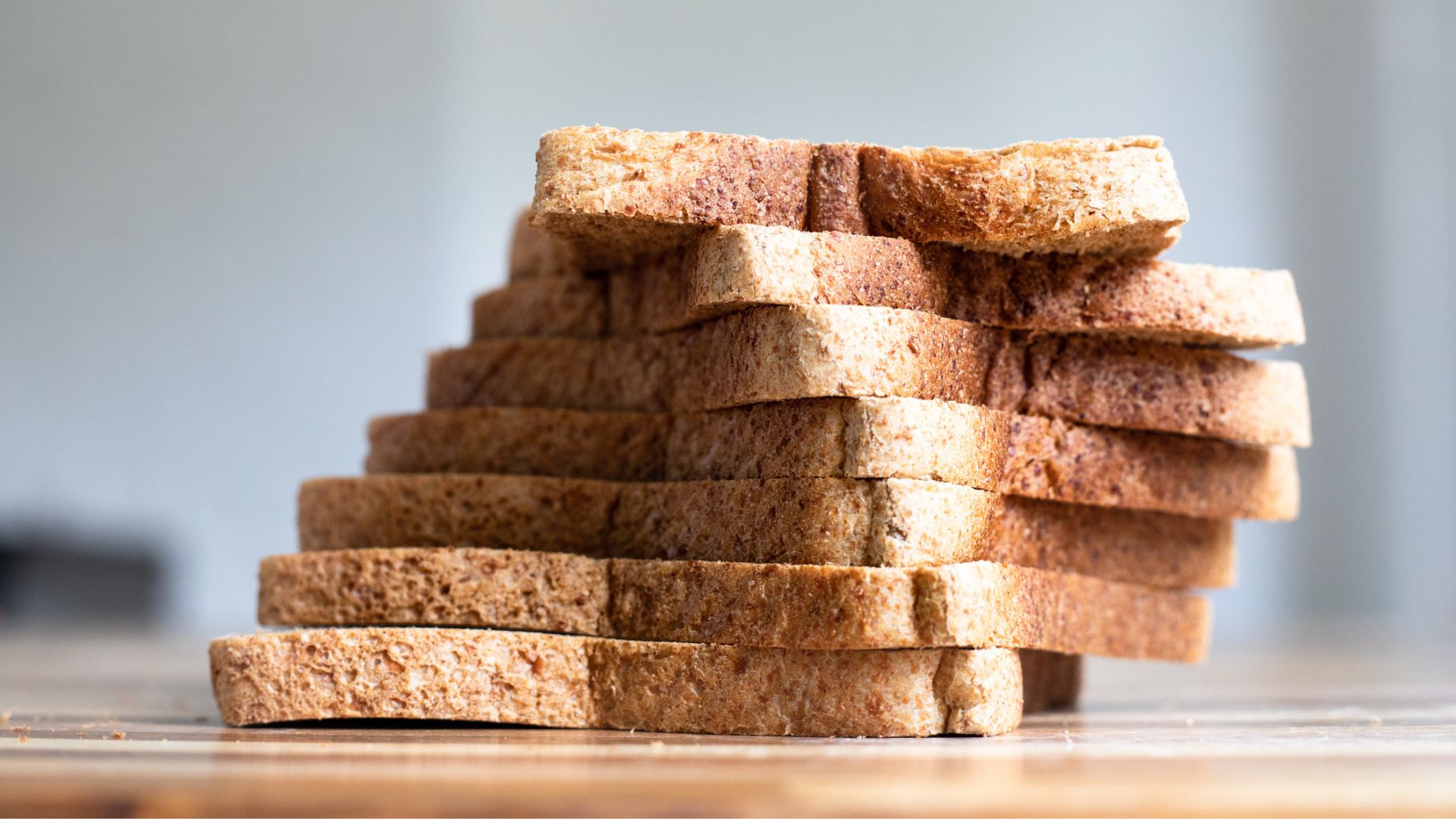
Bread is one of the ultra-processed foods that surprises many people, given that wholemeal bread is rich in vitamins, minerals, complex carbohydrates, and fibre. Compared to other types of bread, it keeps us fuller for longer as these two macronutrients take longer to digest. All good things.
However, this bread also contains refined flour, preservatives, emulsifiers, and added sugars, going to show that not all foods considered 'ultra-processed' are all bad, all the time.
Like most foods, ultra-processed foods are fine in moderation. Combining wholemeal bread with unprocessed whole grains like oats and bran is the way forward.
Instant mashed potato

Instant mashed potato is an ultra-processed food made from dehydrated potato flakes, emulsifiers, and artificial flavourings. The additives included in the flakes to prolong their shelf life are not typically used in cooking.
Frozen potatoes are better than instant potatoes but whole potatoes, cooked fresh, are the best option.
Nut butter
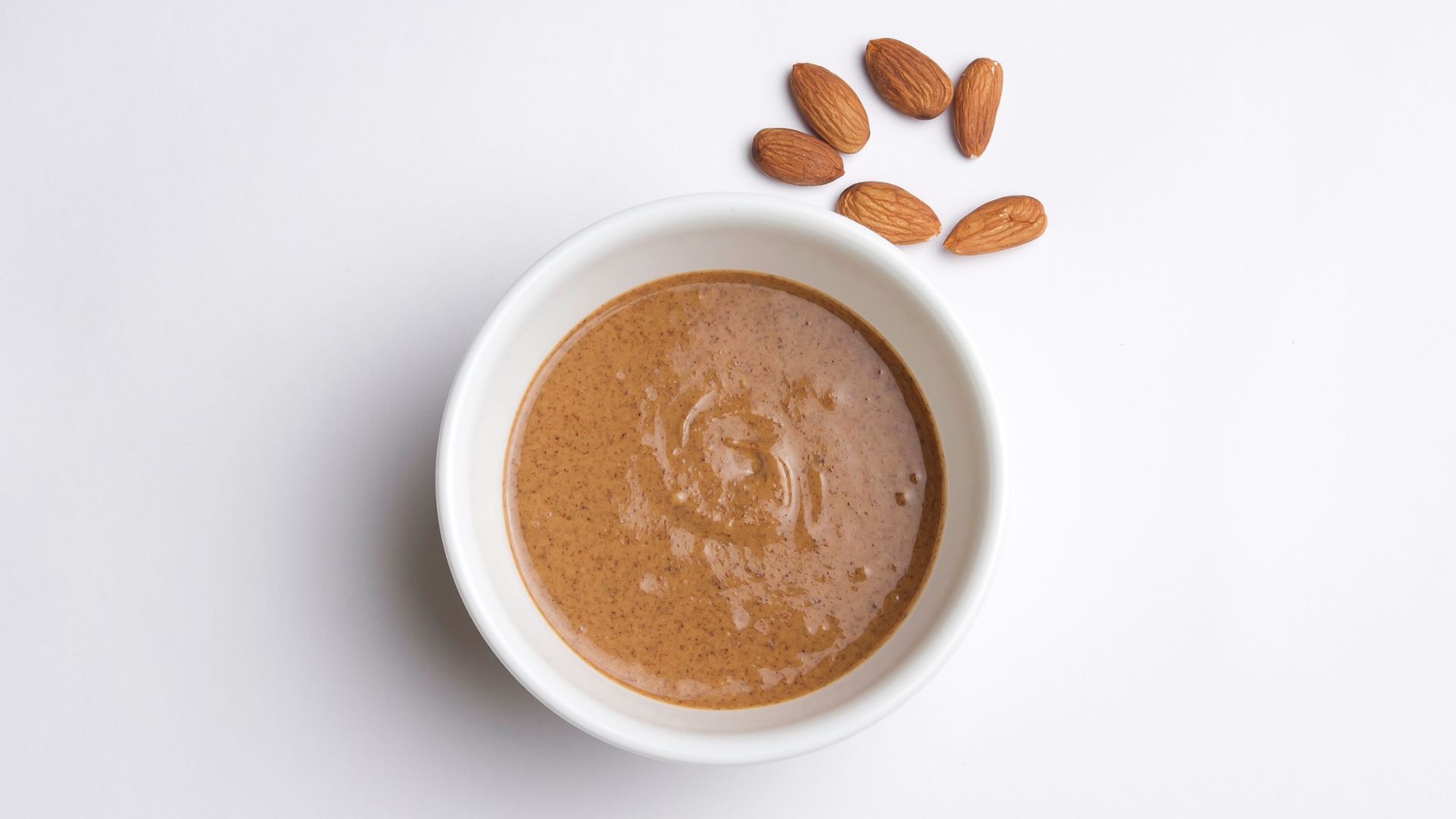
While nut butter is often added to baskets for its benefits - being high in monounsaturated fats, which can help increase the 'good' type of cholesterol (HDL), and vegetable protein - they are considered ultra-processed food.
Peanut butter, almond butter, and walnut butter contain added sugars, hydrogenated oils, and emulsifiers.
Instant soup

While handy for quick lunches and great to have at the back of the cupboard for bulking out meals, instant soups - including the canned variety - have high levels of salt, added sugars, and preservatives to extend the shelf life of these foods.
However, like other ultra-processed foods, canned soups are often fortified with extra vitamins and minerals. Many contain real vegetables too, making them one of the 'Five A Day'.
Canned chilli

Any meal that comes pre-made and pre-packaged with a long shelf life will be ultra-processed as preservatives are used to ensure the food doesn't go mouldy. Chilli con carne is one such meal.
Canned chilli con carne also contains added sugar, refined starches, and flavour enhancers.
Sweets

Much like fizzy drinks and packaged biscuits, it should come as no surprise that sweets are an ultra-processed food, given that they contain zero to few natural ingredients. They have added sugars, artificial flavours, artificial sugars, and producers use food dyes to get the bright colours.
Bread-crumbed chicken
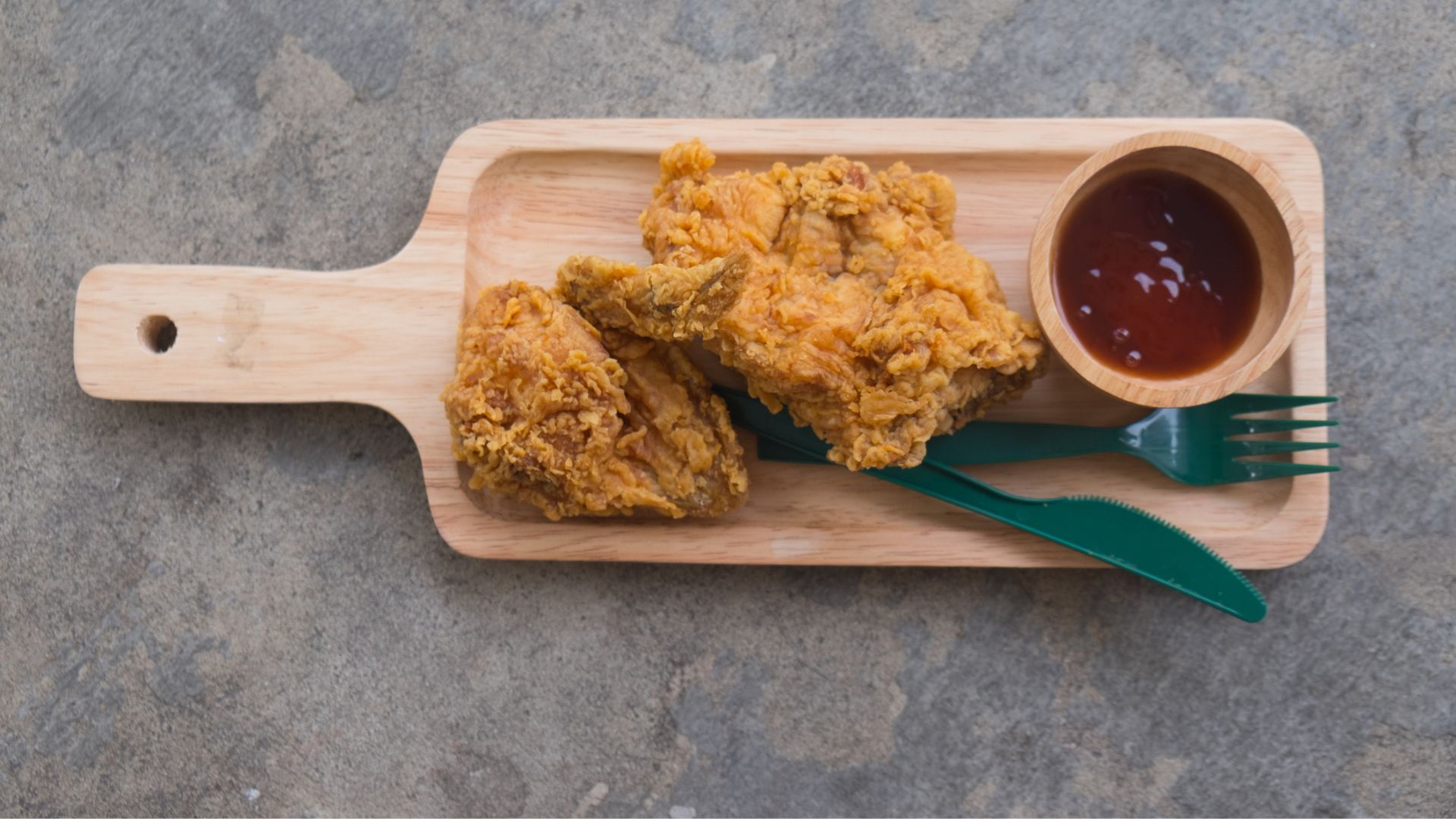
Making bread-crumbed chicken at home with fresh fillets, eggs, and breadcrumbs still involves using some ultra-processed ingredients but less so than buying pre-bread-crumbed chicken.
This is made with processed meat, fillers, artificial flavours and preservatives, and fried in oils either pre-packaging or when being fried at home.
Instant noodles
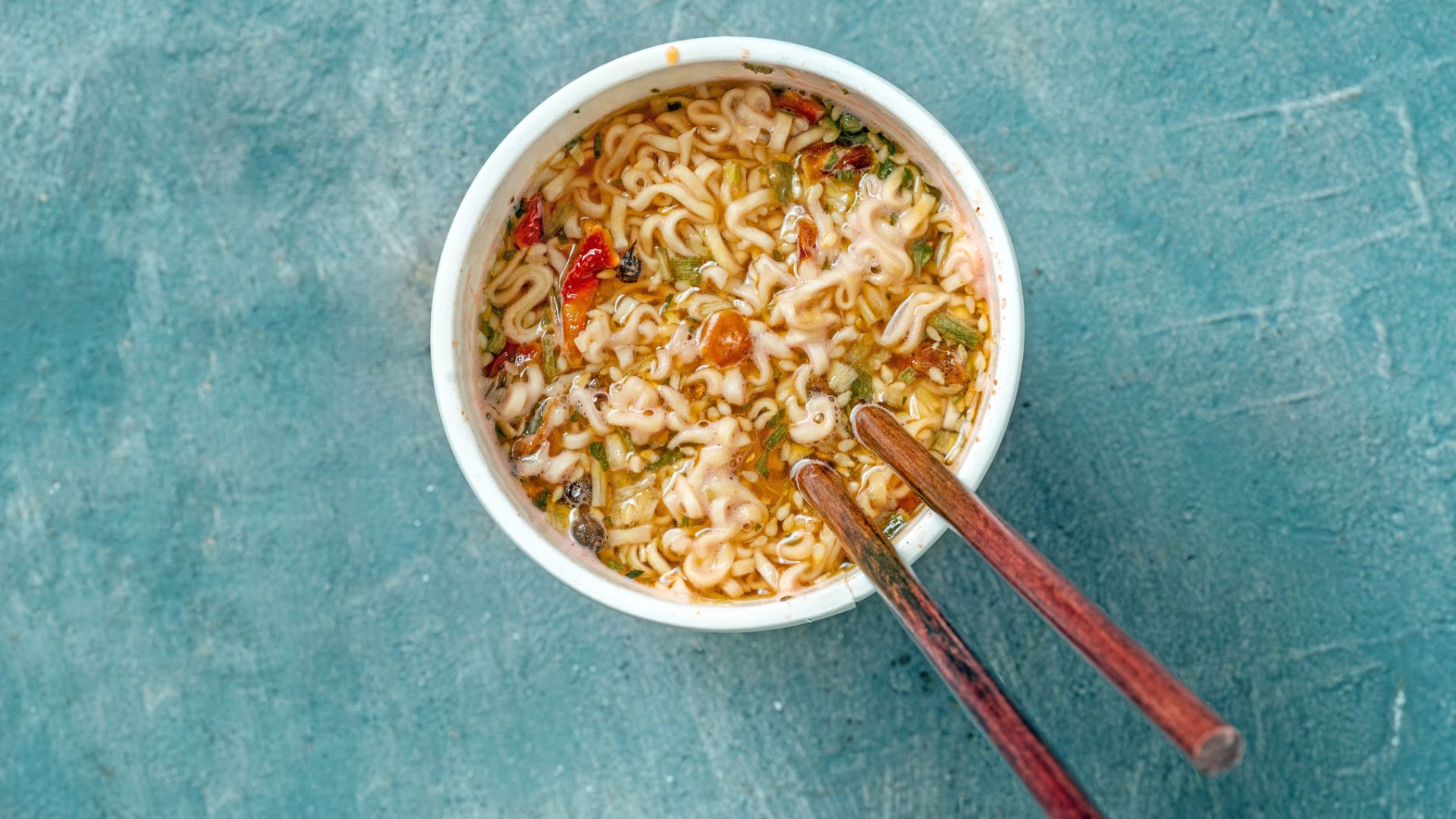
Instant noodles are considered an ultra-processed food as they contain long lists of ingredients with chemical additives like monosodium glutamate (MSG), refined flour, and artificial flavourings.
They also contain very few vitamins and minerals and are low in fibre and protein, while high in calories, fat, and simple carbohydrates.
Microwave meals
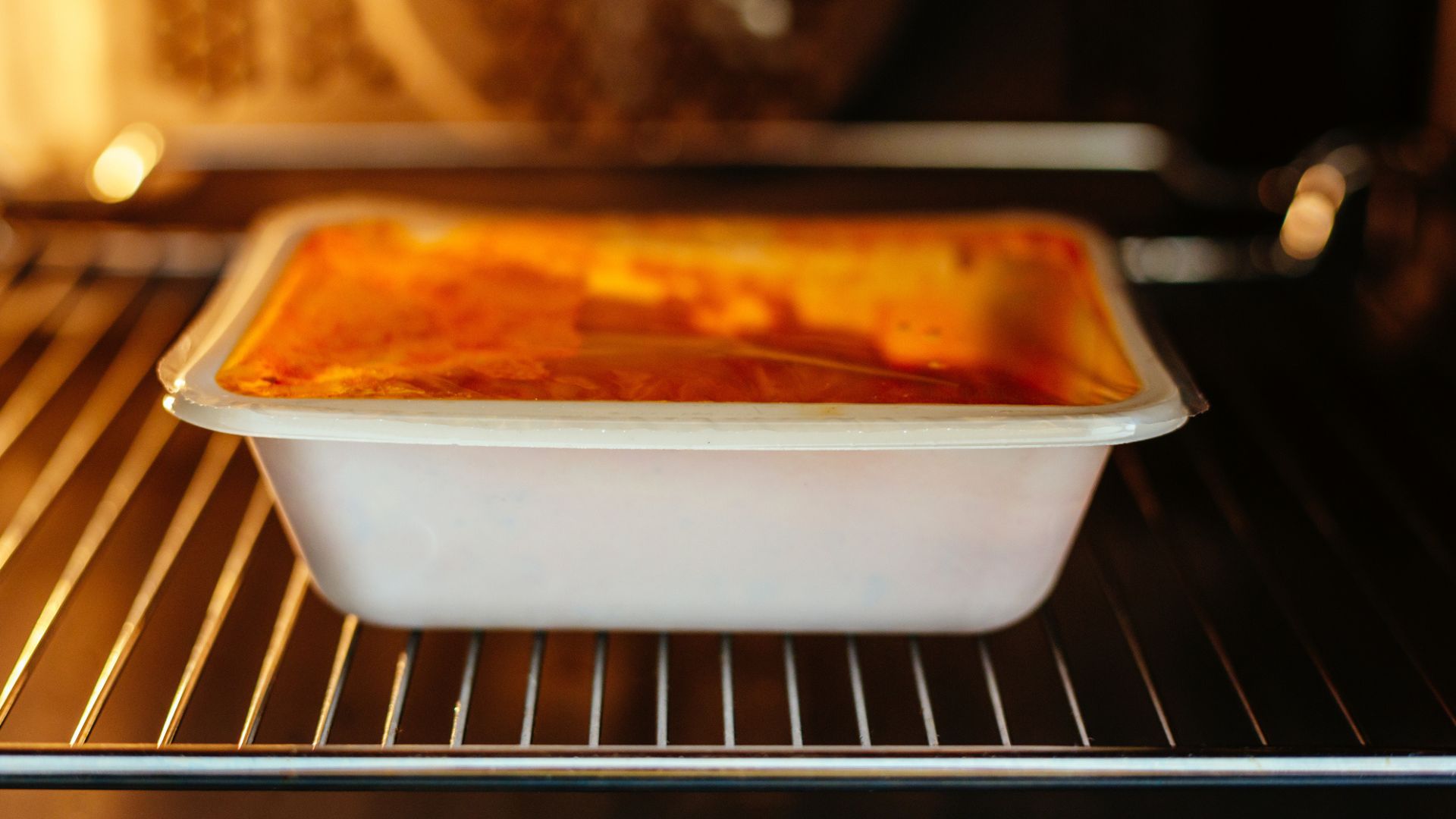
Microwave meals - much like other instant foods - are considered highly ultra-processed as they contain preservatives to ensure they can stay on the self and in freezers for long periods. They also contain artificial flavours and emulsifiers to maintain texture and taste after freezing.
Cheese slices
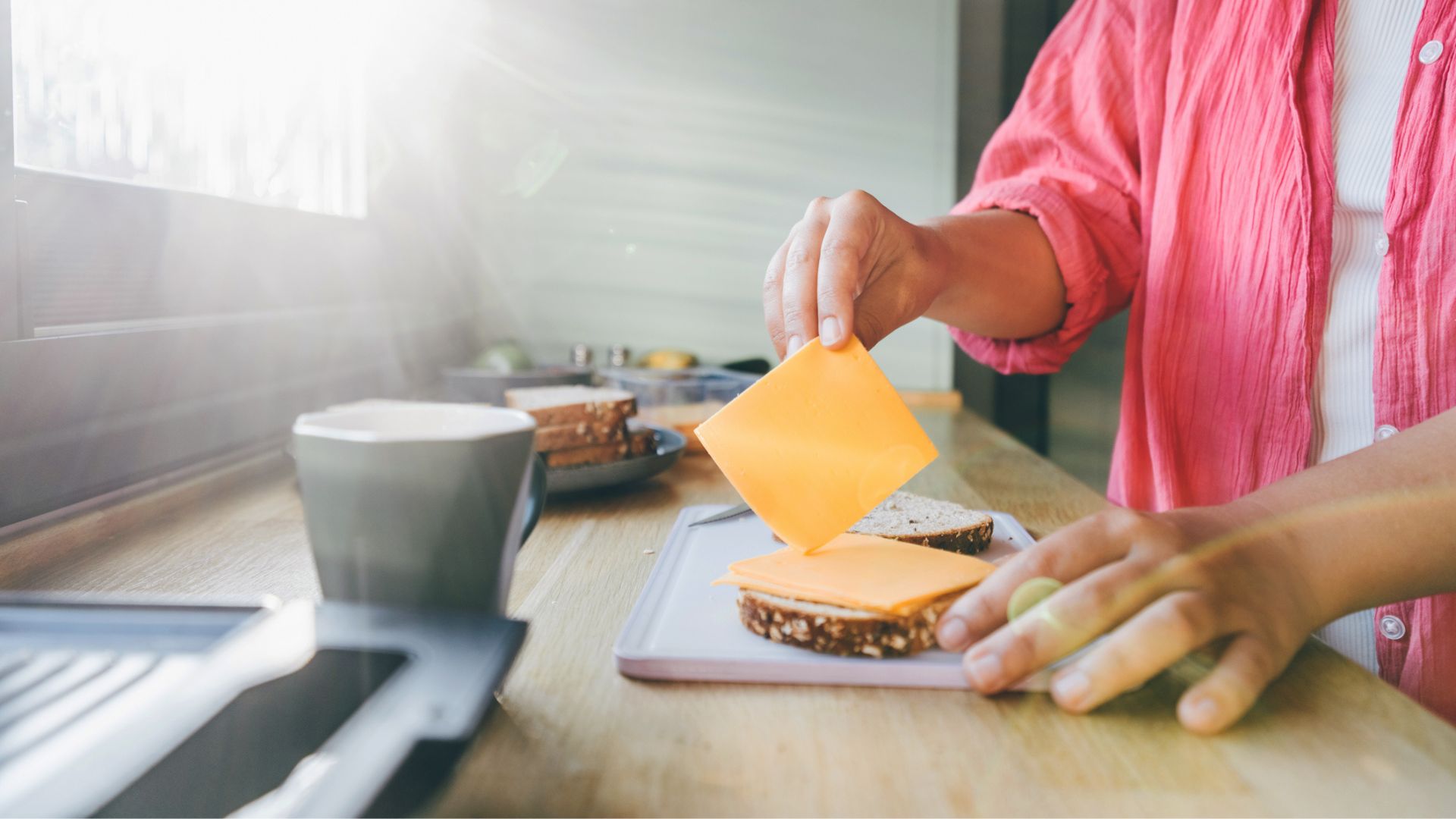
Most cheese is ultra-processed if it has not been freshly made and unpackaged. Cheese slices are among the most processed types of cheese as they contain emulsifiers, preservatives, and food colouring. They actually contain very little real cheese.
Protein powder

Protein powder is a useful way to get more protein in your diet if you're lacking this essential macronutrient. Protein is needed for proper muscle growth and repair, as well as being one of the more filling macronutrients.
However, protein powder contains isolates, artificial sweeteners, and emulsifiers, which means it's considered an ultra-processed food.
Hot dogs

Hot dogs are made from processed meat and are often served up in processed bread buns and topped with sauces like mustard and ketchup, which are also highly processed foods.
These foods contain nitrates, preservatives, emulsifiers, added flavourings, and colourings.
Powdered drinks

Powdered drinks and shakes are often fortified with extra nutrients, contain plenty of good macronutrients, vitamins, and minerals, and are seen as an affordable alternative to some foods by many people. Plus, they are convenient for those who need to eat on the go.
However, that only goes to show that not all ultra-processed foods are 'bad' as they tend to contain added sugars, artificial sweeteners, flavours, and colours.
Cereals
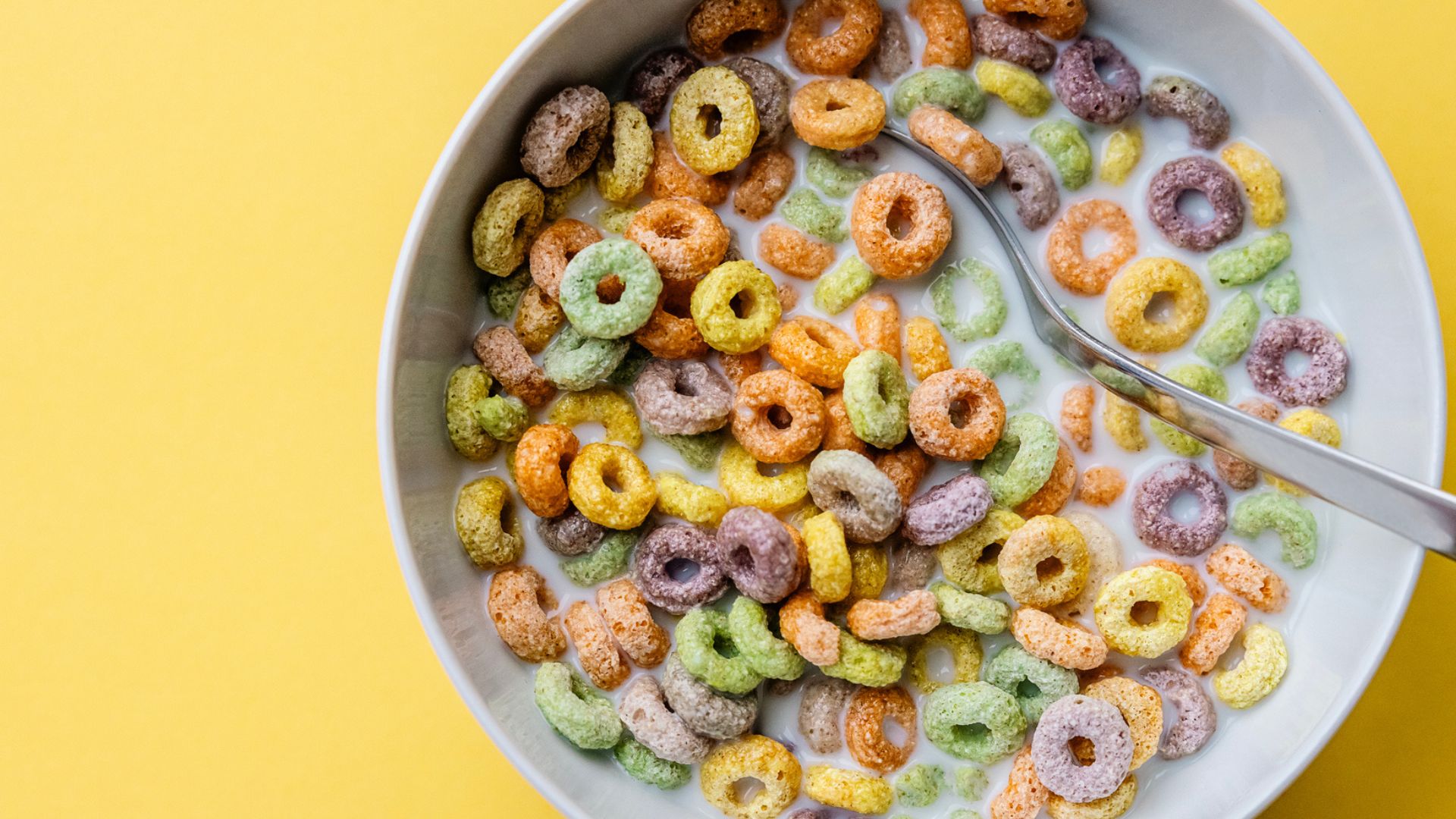
Cereal is another popular ultra-processed food. While being fortified with vitamins, minerals, and rich in fibre, many classic breakfast cereals also contain lots of added sugars, are made from refined grains, and have flavourings and preservatives within them to enhance their flavour and prolong their shelf life.
Not all cereals are made equal though. When choosing yours, if you want to avoid eating ultra-processed foods, opt for the cereals with the fewest ingredients on the back of the packet.
Instant gravy
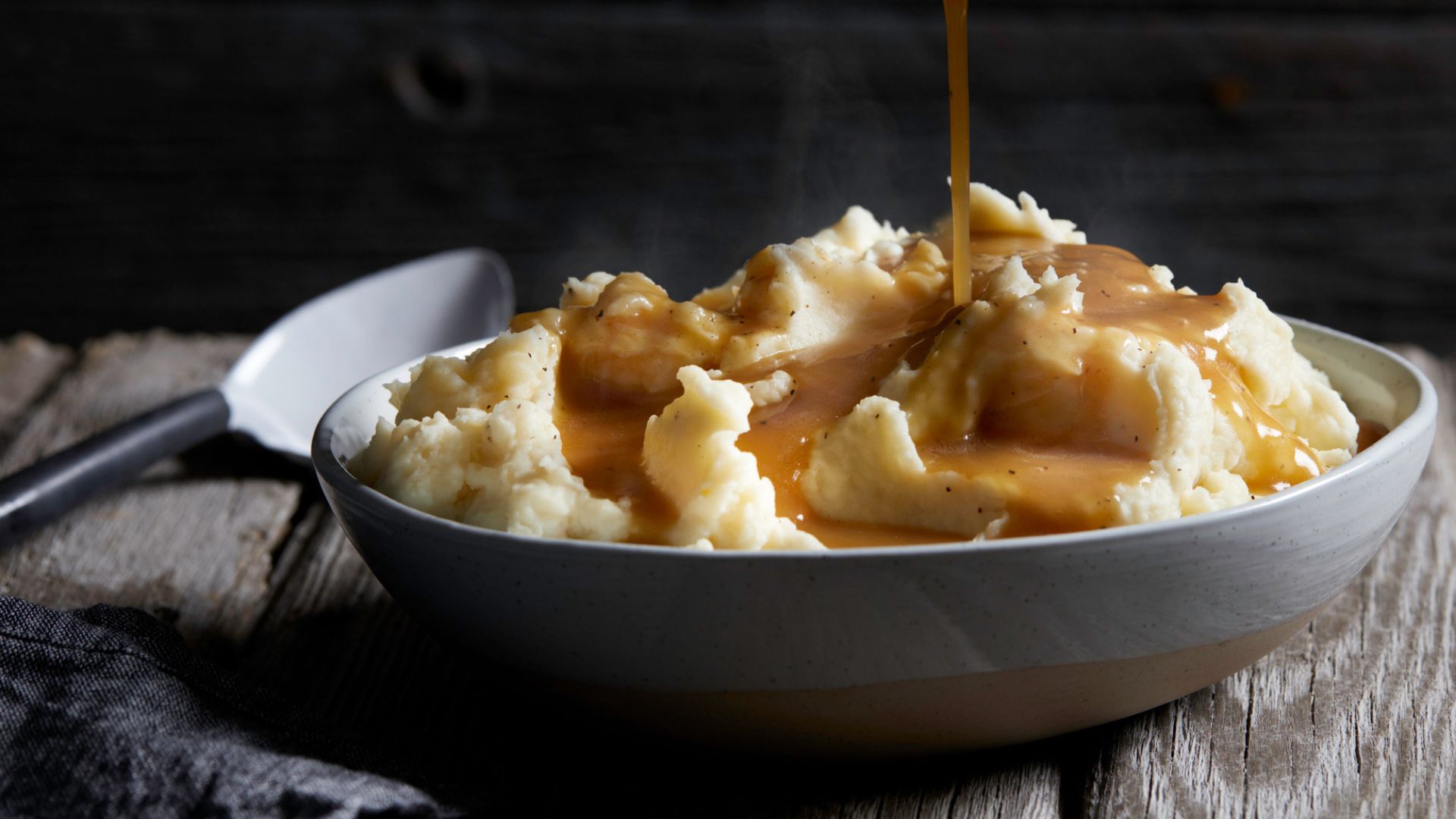
Granulated and powdered gravy is a quick and easy option for Sunday roasts and sausage and mash. However, it contains significantly more refined starch, preservatives, and artificial flavourings than gravy that's made at home using stock and vegetables, making is another commonly ultra-processed food.
Vegetable crisps
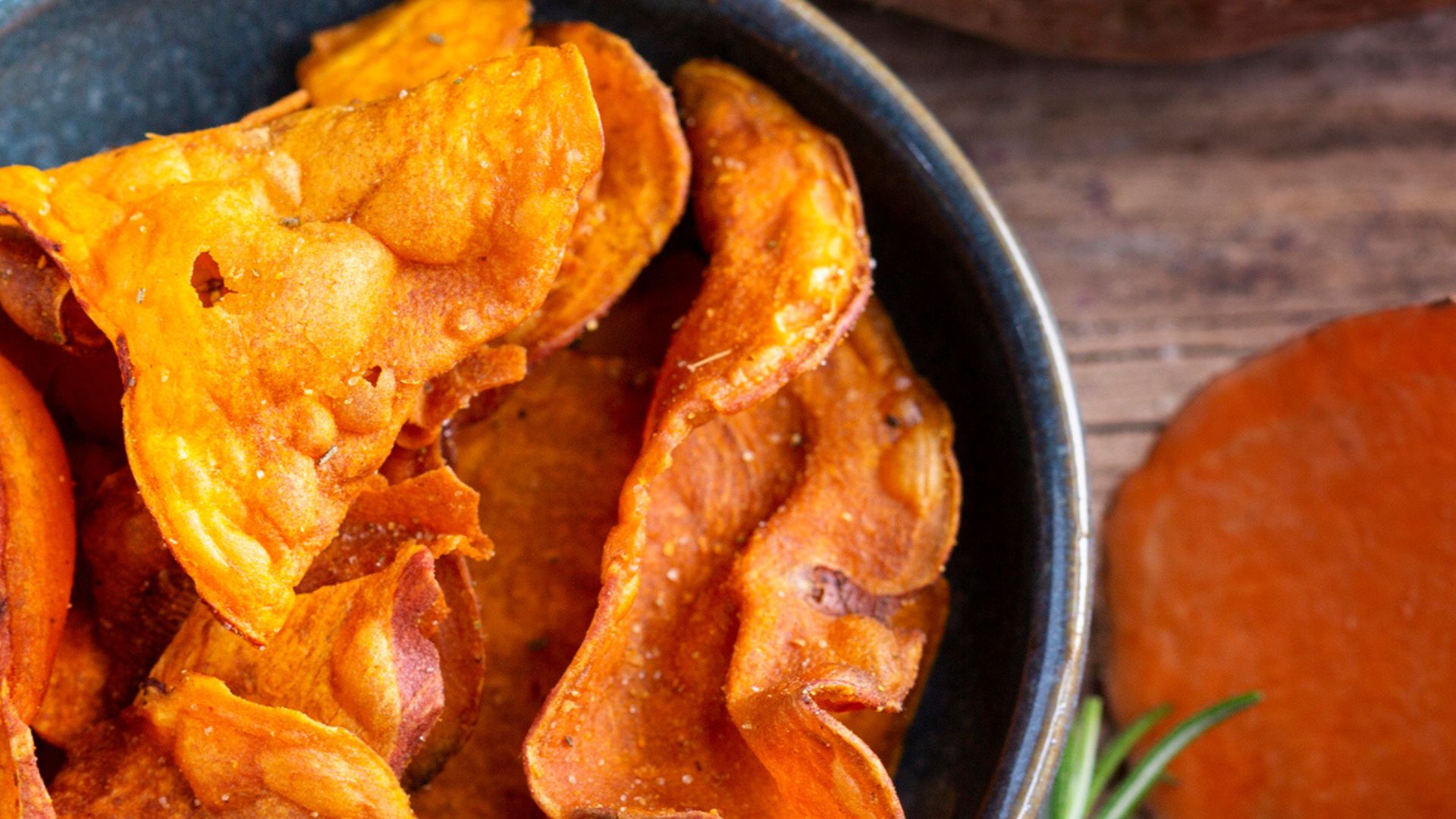
Vegetable crisps might be a 'healthy' alternative to regular potato chips, being made from root vegetables like carrots, parsnips, and sweet potatoes, or leafy greens like spinach and kale but they often go through the same processing as regular crisps.
This means they have starches added to them and artificial flavourings are used to boost the flavour profile. They are also fried in refined oils.
Flavoured yoghurts

Yoghurts that have been artificially flavoured with fruits like strawberry and raspberry tend to contain added sugars to bring out the taste of the fruit, artificial flavourings, and stabilisers like pectin and gelatin. These help to preserve the structure of the yoghurt and approve its appearance on opening the packet.
Ice cream

High in added sugars, artificial flavourings, and stabilisers like guar gum, store-bought and pre-packaged ice creams are an ultra-processed food.
If you make ice cream at home using fresh ingredients, you can lower the number of UPFs that go into your sweet treat.
Salad dressing
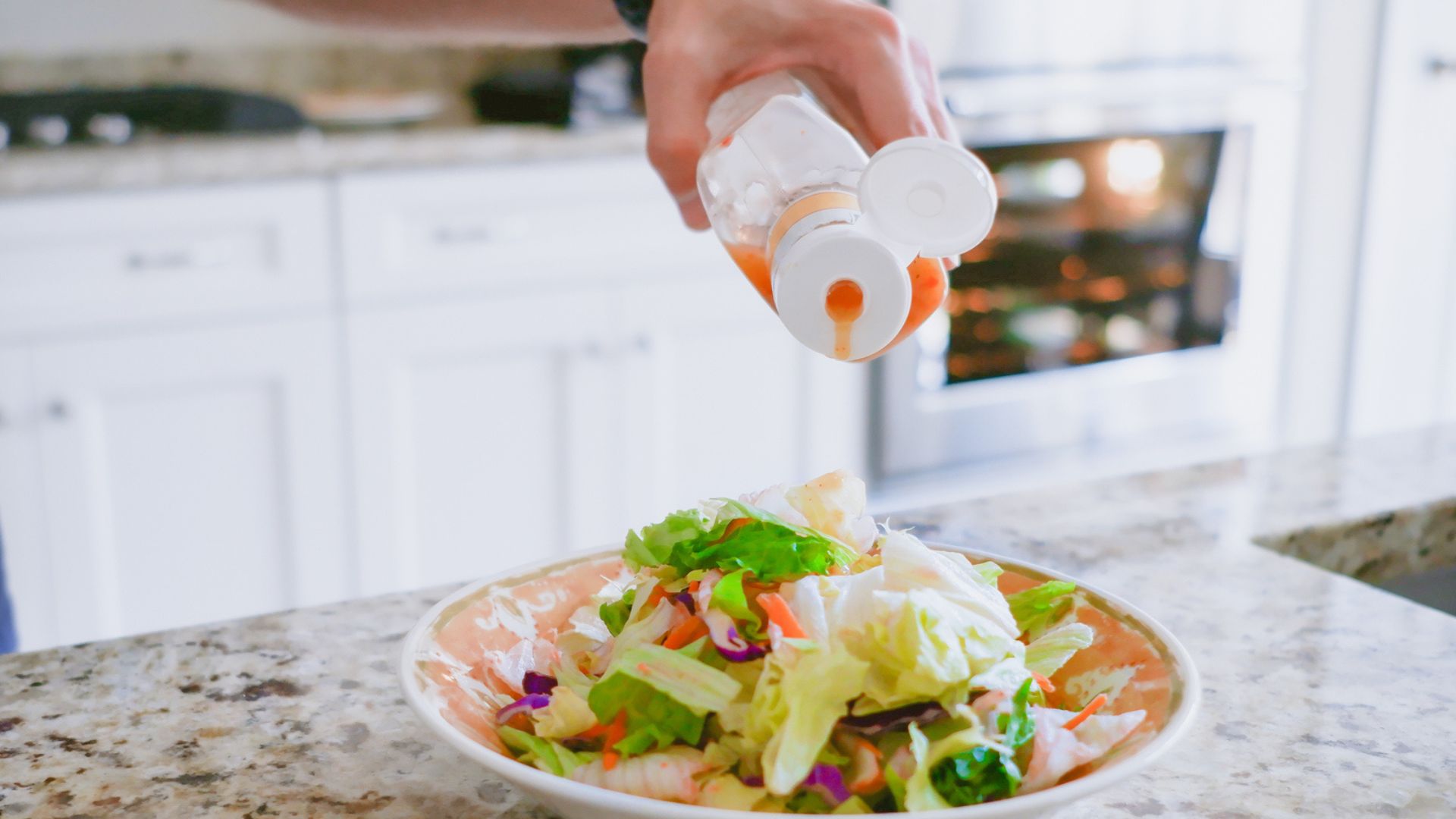
Bottled salad dressing contains preservatives, emulsifiers, added sugar and unhealthy fats to help preserve its shelf life and increase longevity after opening.
These dressings also include ingredients like palm oil and monosodium glutamate (MSG), increasing the intensity of savoury flavours.
Meal replacement shakes
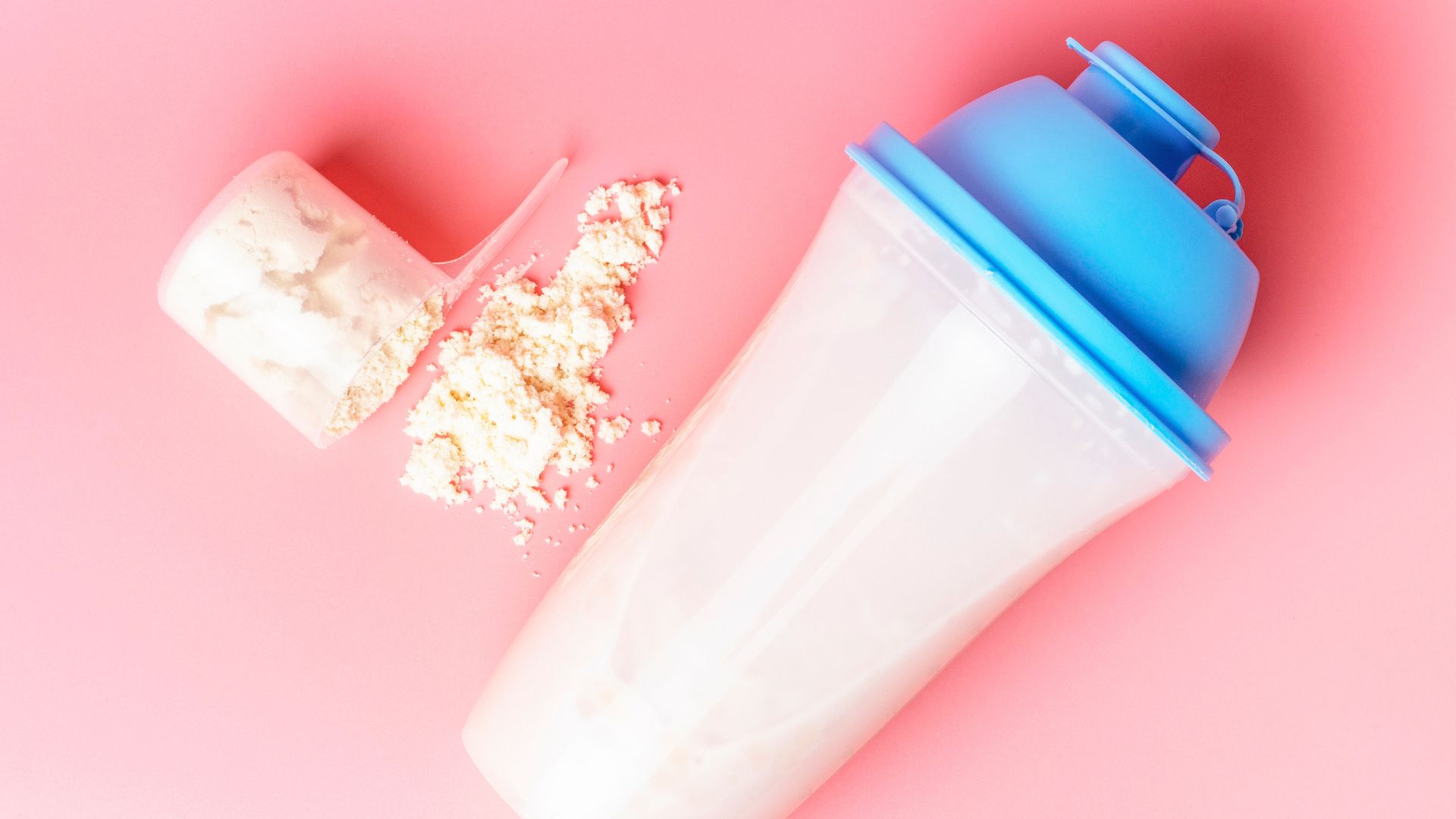
Meal replacement shakes are quick and easy alternatives to full meals - perfect for those need to eat on the move and want to make sure they get all the vitamins, minerals, and macronutrients they'd otherwise get from food.
Yet, much like protein powders and other powdered drinks, they are heavily processed to allow for this flexible eating style. They contain protein isolates, flavourings, emulsifiers, and artificial sweetners - but that doesn't mean they can't be part of a balanced diet.
Energy bars

Much like meal replacements, energy and protein bars are highly processed to keep them on shelves and in cupboards for longer. They contain refined sugars, artificial additives for texture and flavour, and protein isolates.
Sucralose is one such added sugar that's frequently used in protein and energy bars. This ingredient can negatively impact gut bacteria, which is one of the causes of bloating.
Frozen pizza

Frozen pizza, with its long list of ingredients, is a popular ultra-processed food and it's status as a UPF is unlikely to surprise anyone as these are designed to stay on shelves and in freezers for a long time.
They contain processed cheese, which is a UPF in itself, and the bases are made from refined flour with added sugars and preservatives.
Instant porridge
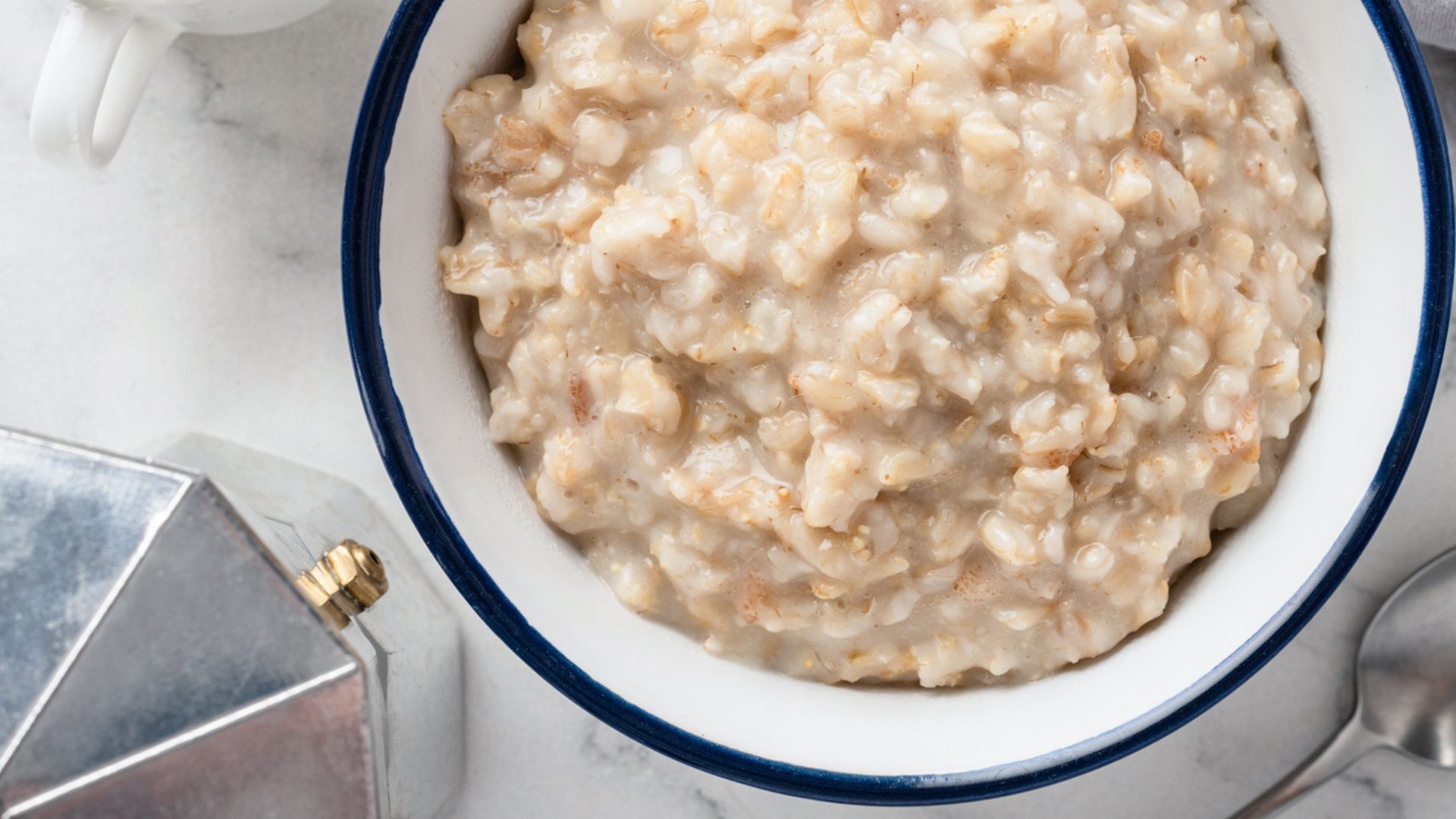
From a camping essential to a store cupboard staple, having instant porridge is an easy way for many people to have a filling breakfast in the morning. Oats are one of the least processed whole grains, so with fruit and seeds as porridge toppings, they make for an excellent start to the day.
However, it's best to make porridge from scratch where you can as instant porridge is made up of artificial sugars, flavours, and preservatives.
Canned pasta
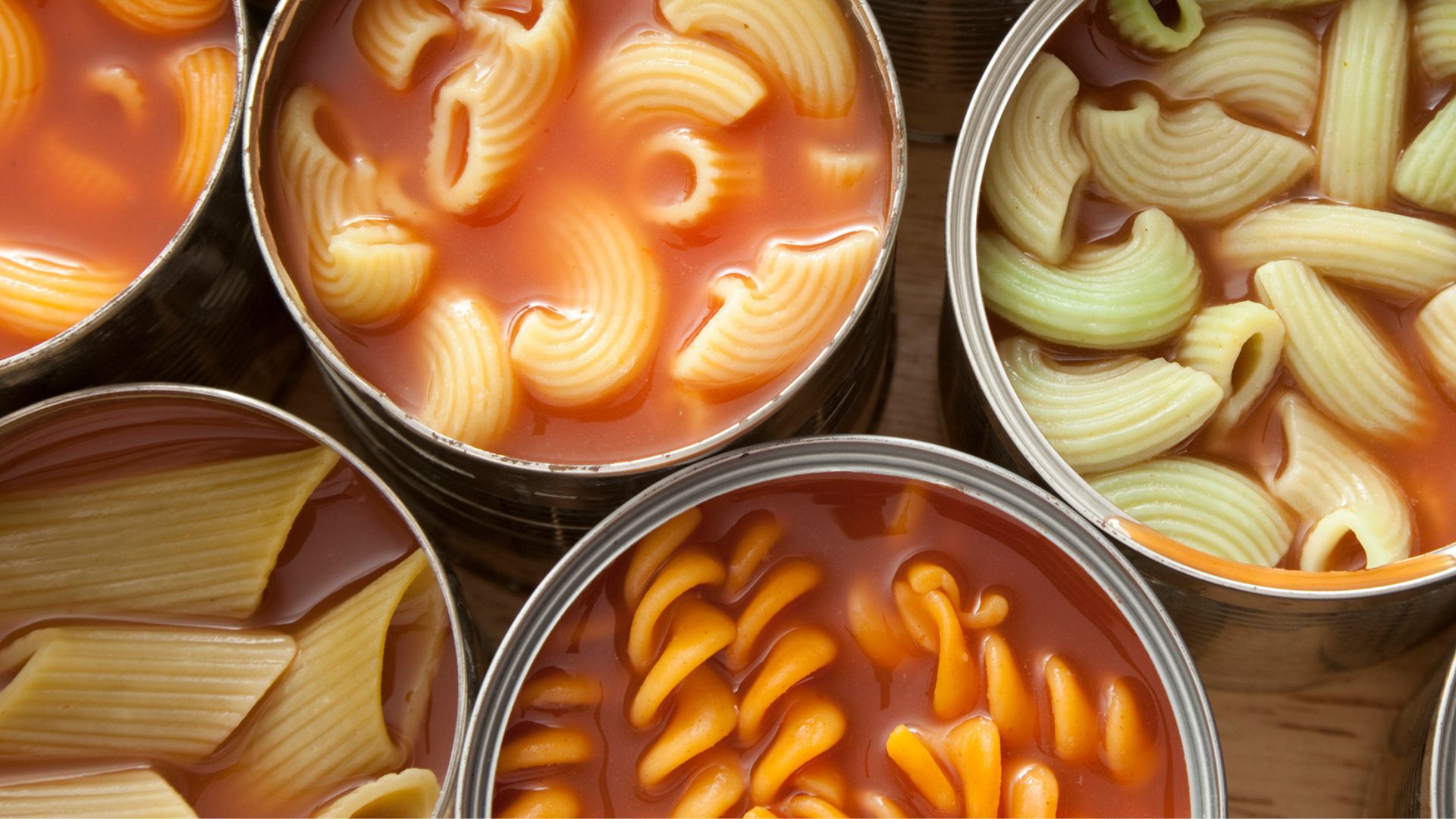
Canned pasta is designed to sit in store cupboards and on supermarket shelves for years - so it's no surprise that it's an ultra-processed food (UPF). These pasta dishes are made from refined flour and have added sugars, salt, and preservatives.
Regular dried pasta is not considered an ultra-processed food though and actually can be more nutritious than fresh pasta.
Pastries

Pastries are a popular breakfast food, boosting sugar levels (albeit temporarily) and offering a delicious start to the day. In moderation, they can be part of a healthy, balanced diet. However, they are made with refined flour and are high in sugar, with preservatives used to maintain their shelf life.
Pastries made at home with regular baking ingredients aren't considered ultra-processed as they use regular baking ingredients.
Some types of alcohol

Alcohol that has been distilled - including gin, rum, vodka, and whisky - is considered to be an ultra-processed food and despite the attention around UPFs in recent years, it's not one people talk about often.
These drinks can also contain sweeteners, preservatives, emulsifiers, and artificial flavourings.
Chocolate bars
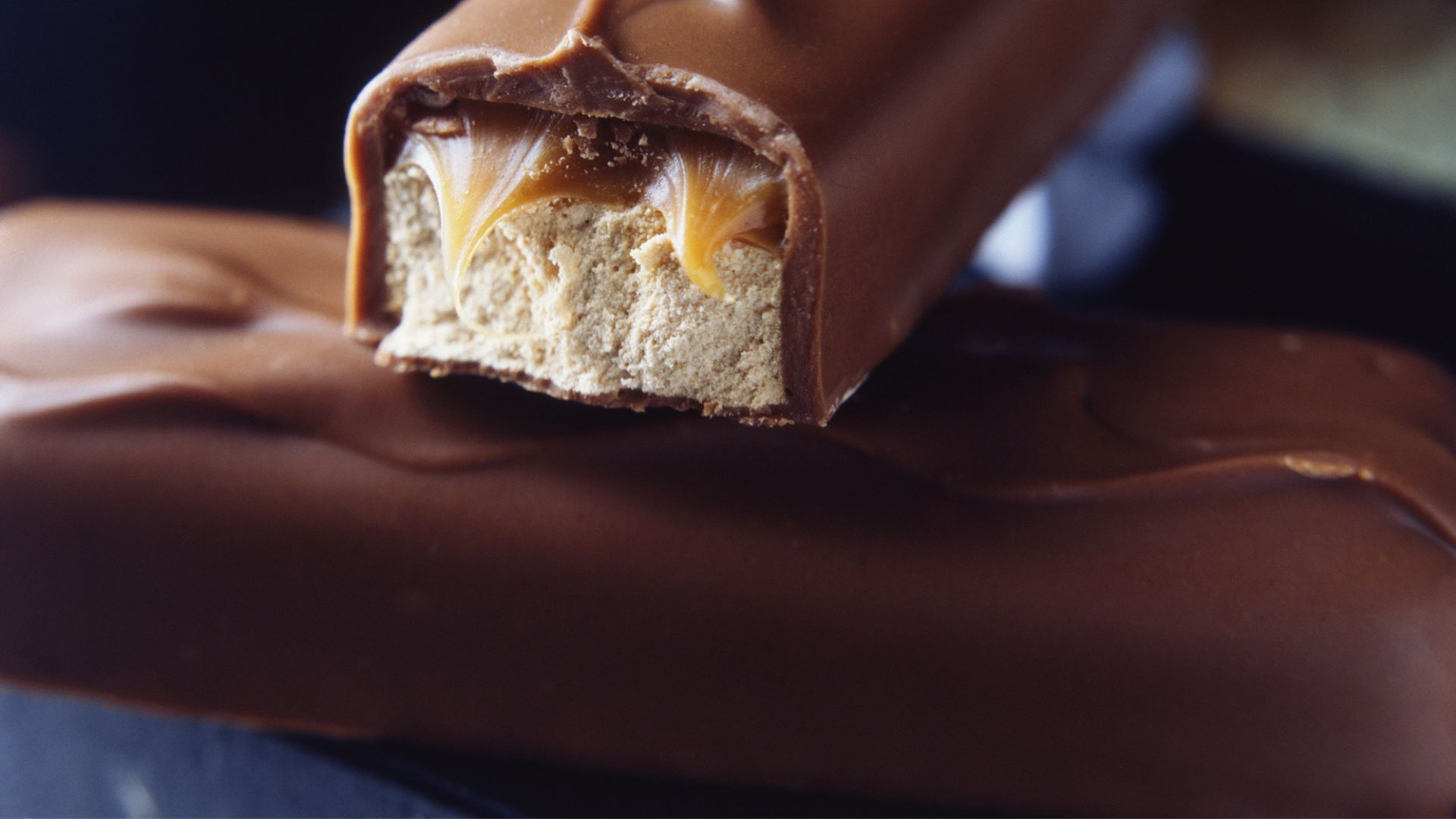
Made with refined sugar, unhealthy fats, artificial flavours and emsulsifiers, regular chocolate bars are another common UPF. They are packaged up and often stored on shelves for a long time, so they need to contain preservatives to prolong their shelf life.
However, like almost any other ultra-processed food, there's no research to suggest that chocolate bars can be had in moderation as part of a varied and balanced diet.
Pre-packaged smoothies
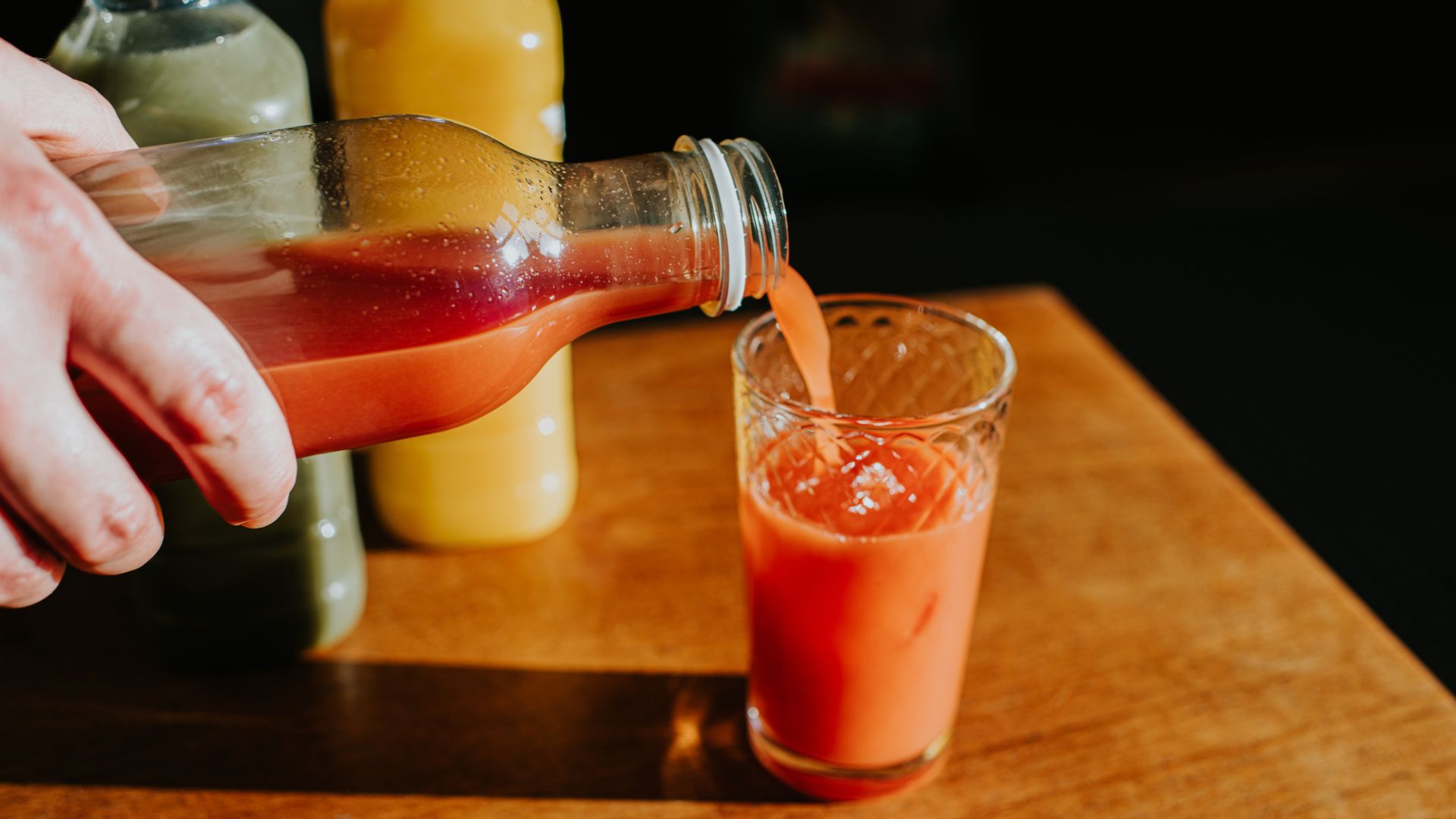
Yes, surprisingly, smoothies pre-made and packaged up are considered to be an ultra-processed food. They can contain ingredients not used in a regular home kitchen - such as sweeteners, preservatives, and emulsifiers - so they fit into the UPF category.
To avoid unnecessary UPFs in your diet, switch out store-bought smoothies for homemade ones. All you need is some fruit and a strong blender to get started.
Margarine
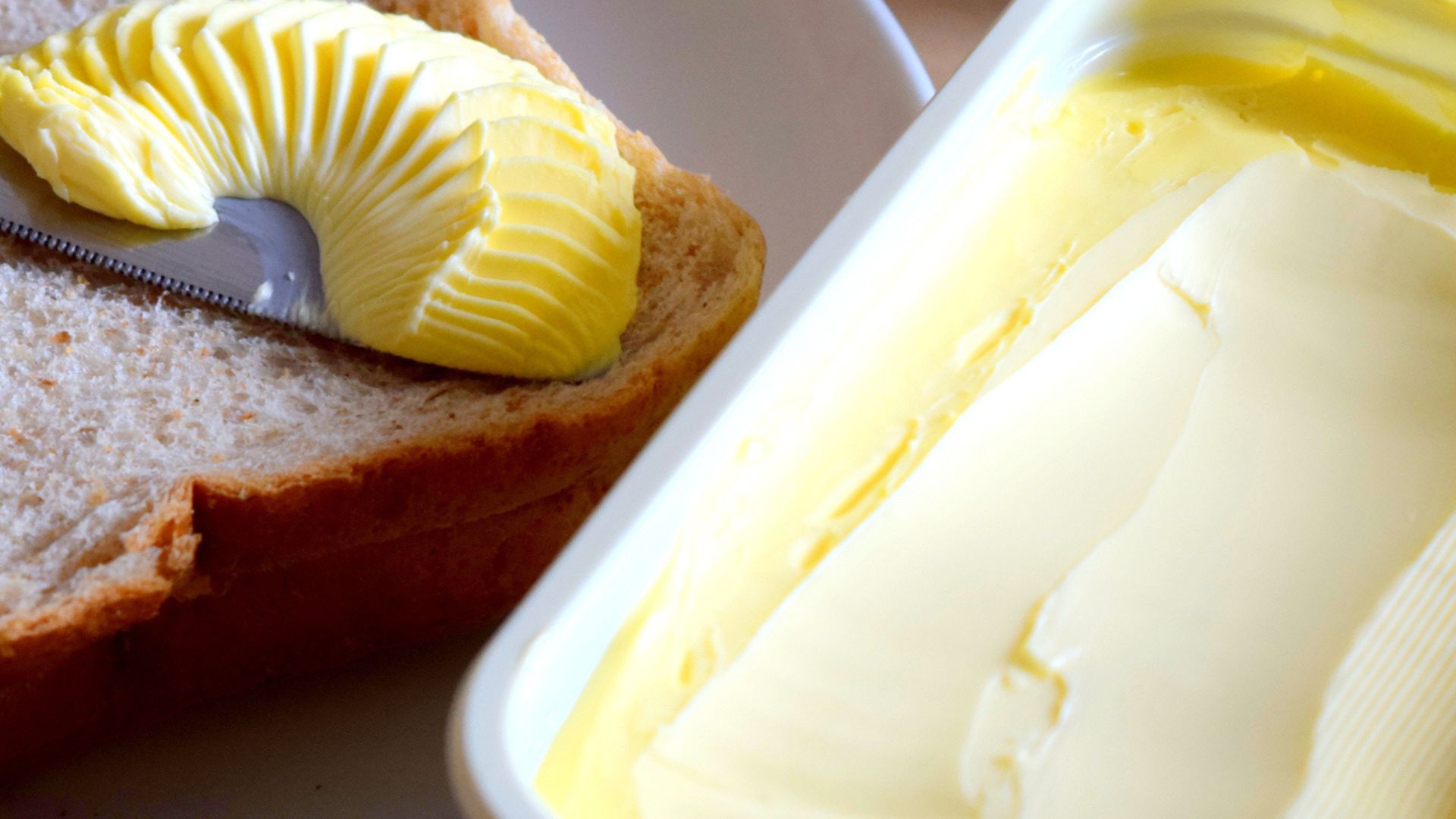
Margarine is considered an ultra-processed food, with hydrogenated oils, emulsifiers, and artificial colours on the ingredients list, although it contains less saturated fat and more healthy fats than butter in some cases.
Butter is not considered to be UPF though as it has only gone through minimal and simple processing procedures.

Grace Walsh is woman&home's Health Channel Editor, working across the areas of fitness, nutrition, sleep, mental health, relationships, and sex. She is also a qualified fitness instructor. In 2025, she will be taking on her third marathon in Brighton, completing her first ultra marathon, and qualifying as a certified personal trainer and nutrition coach.
A digital journalist with over seven years experience as a writer and editor for UK publications, Grace has covered (almost) everything in the world of health and wellbeing with bylines in Cosmopolitan, Red, The i Paper, GoodtoKnow, and more.
-
 Smeg's retro hand mixer puts the 'king' in baking - I'm convinced it's the best
Smeg's retro hand mixer puts the 'king' in baking - I'm convinced it's the bestThe Smeg 50s Style Hand Mixer is every keen baker's dream: it whips up cream, mixes cookie dough, and kneads bread like the best hand mixers on the market
By Laura Honey Published
-
 From highlights to glosses, here's everything you should know before colouring Afro-textured hair
From highlights to glosses, here's everything you should know before colouring Afro-textured hairKeep your curls and coils healthy during colour processes with this beauty editor's guide
By Keeks Reid Published
-
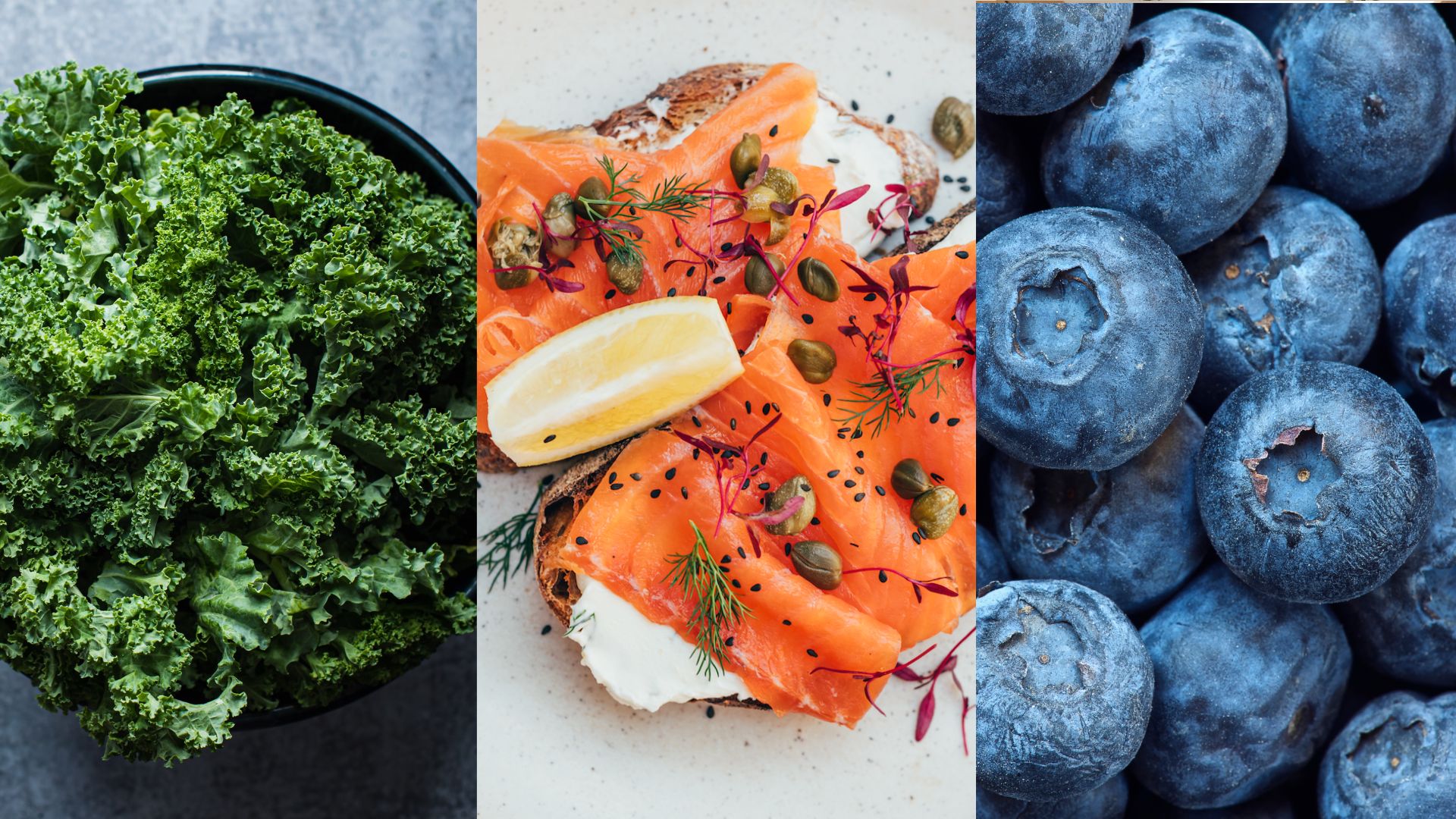 Nourishing skin-friendly foods for a glowing complexion
Nourishing skin-friendly foods for a glowing complexionAs well as the products in your bathroom, munching on skin-friendly foods is the key to a beautiful visage...
By Lauren Clark Published
-
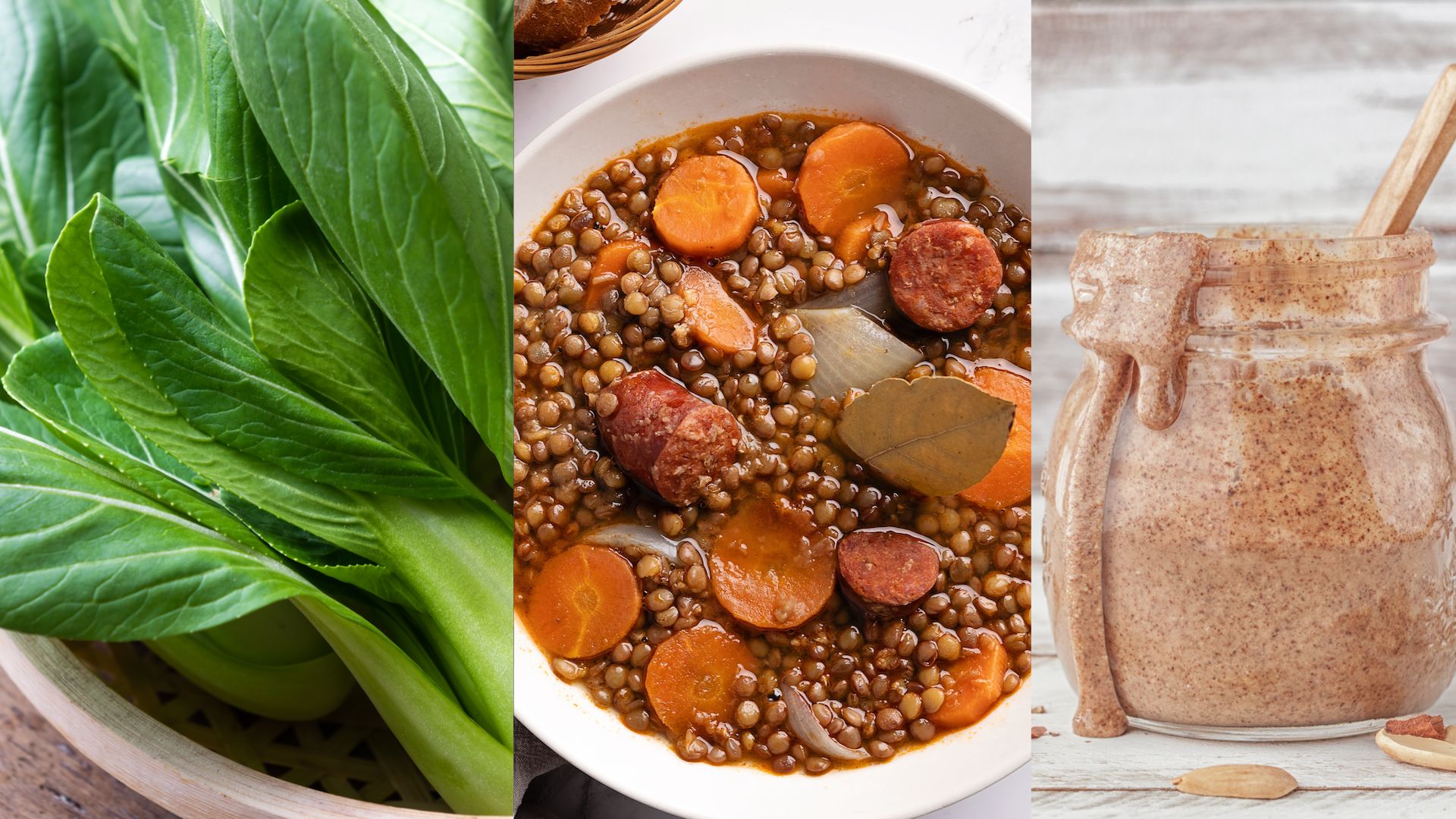 The best cholesterol-lowering foods to incorporate into your diet
The best cholesterol-lowering foods to incorporate into your dietAdd these delicious cholesterol-lowering foods to your basket...
By Lauren Clark Published
-
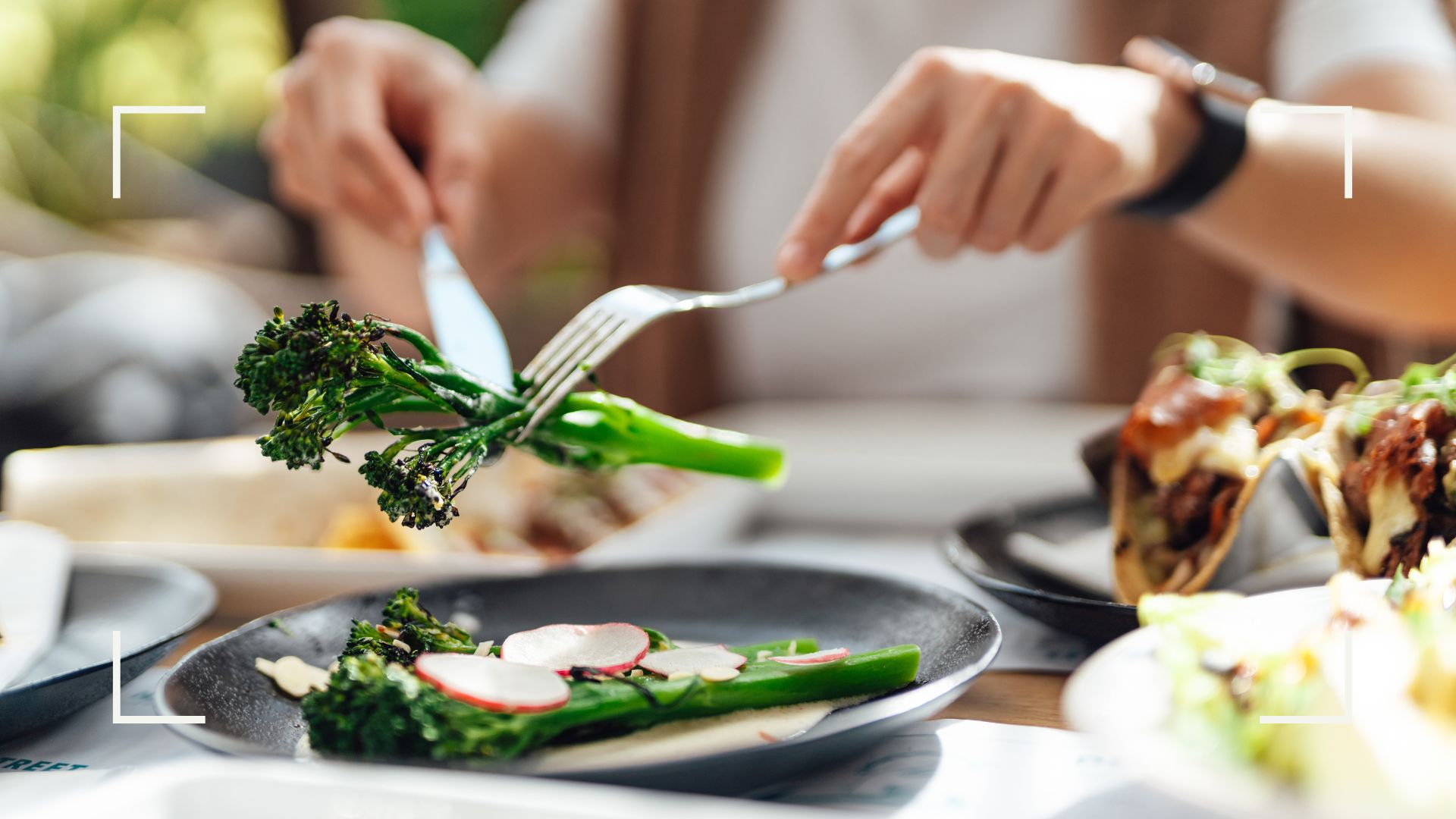 The best foods to eat during the heatwave - and the ones to avoid
The best foods to eat during the heatwave - and the ones to avoidKeep cool with these hydrating (yet delicious) foods...
By Emily Smith Published
-
 How to stop emotional eating for good, so you can build a better relationship with food
How to stop emotional eating for good, so you can build a better relationship with foodLearning how to stop emotional eating will allow you to focus on fuelling yourself up with nourishing meals...
By Lauren Hughes Last updated
-
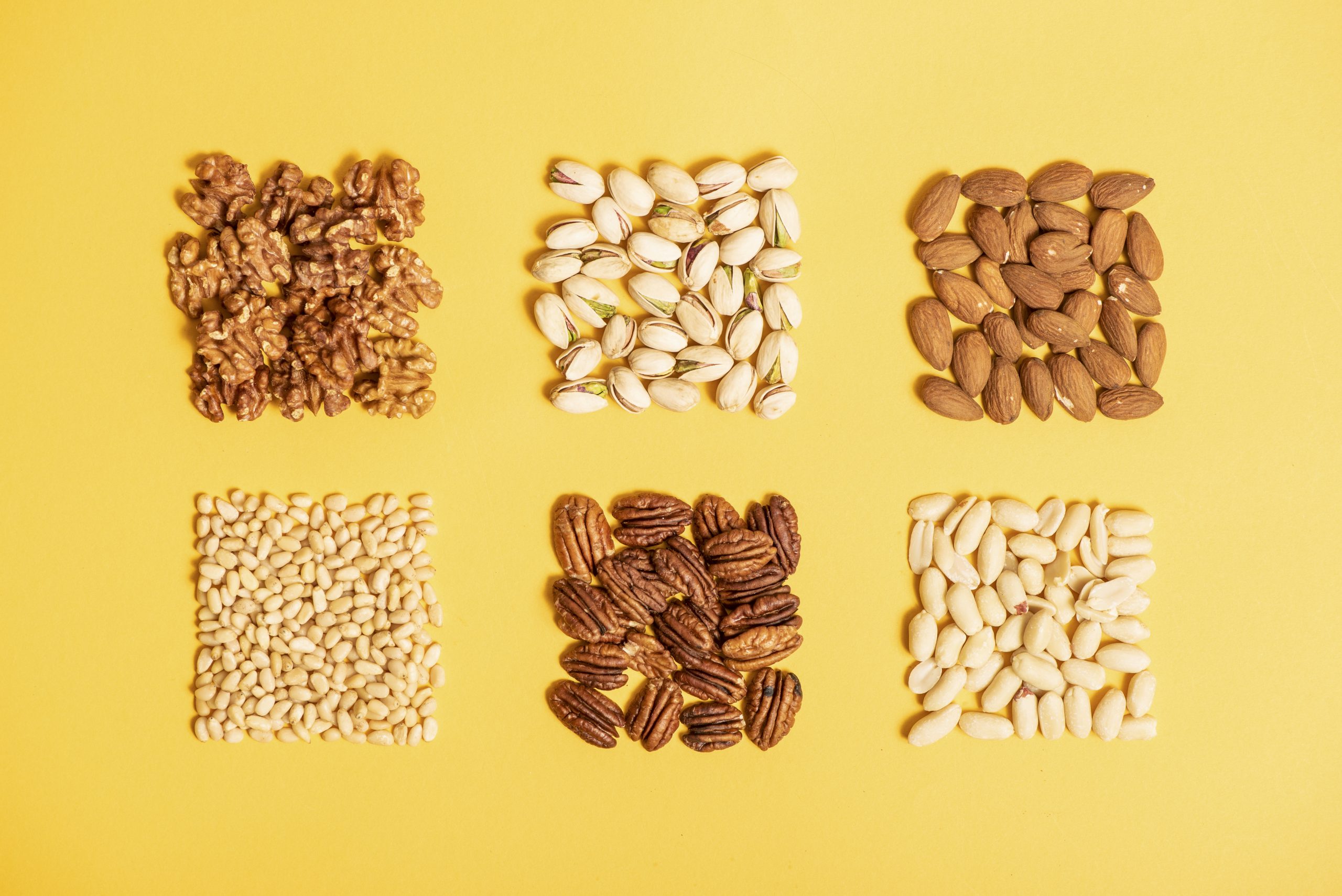 Eating nuts could lead to a flat tummy, plus 6 other benefits
Eating nuts could lead to a flat tummy, plus 6 other benefitsSnacking right could bring big rewards
By Faye M Smith Published
